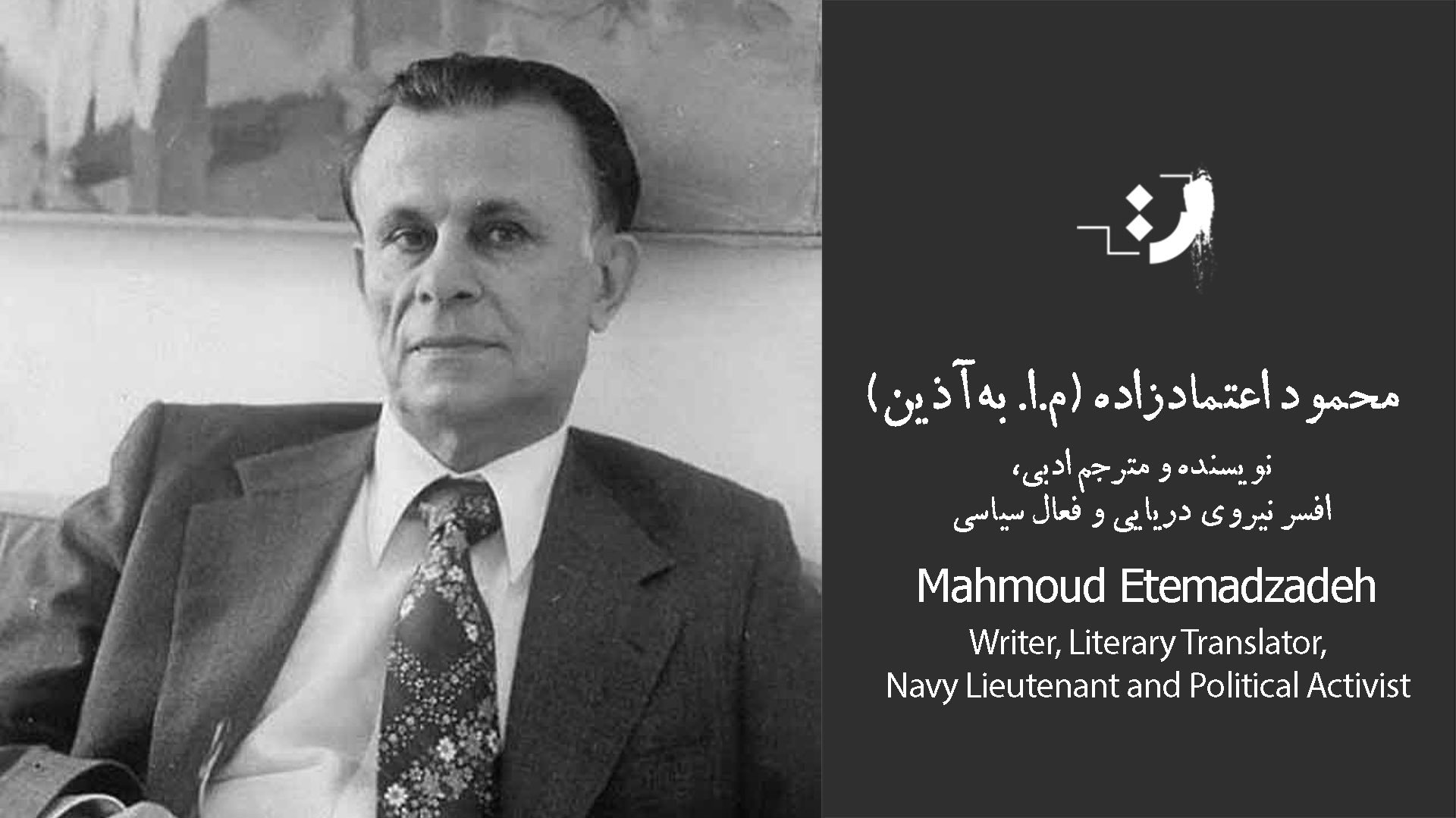Mahmoud Etemadzadeh (M. A. Beh-azin)

Biography
Mahmoud Etemadzadeh (M. A. Beh-azin) (1915–2006)
Iranian Writer, Translator, Naval Engineer, and Political Activist
Early Life and Education
Mahmoud Etemadzadeh, better known by his pen name Beh-azin, was born on January 14, 1915, in Rasht, Iran. He completed his primary education in Rasht, his first three years of secondary school in Mashhad, and the remaining three years in Tehran. In 1932, he was selected as part of a government-sponsored group of students to study abroad and was sent to France.
In France, Beh-azin studied naval engineering, earning credentials from the École Navale in Brest and the School of Naval Architecture in Paris. During his stay, he became fluent in French—a skill that would later play a central role in his literary career.
Military Career and Injury
After returning to Iran in 1939, Beh-azin joined the Imperial Iranian Navy with the rank of Second Lieutenant. He was stationed first in Khorramshahr, and two years later, he was transferred to Bandar-e Anzali, where he became the head of the Navy’s repair workshop.
On August 25, 1941, during the Anglo-Soviet invasion of Iran, Beh-azin was wounded in a Soviet bombing raid on Bandar-e Anzali. A piece of shrapnel severely damaged his left hand, which later had to be amputated. This injury marked a turning point in his life. Frustrated by the restrictions imposed on military officers regarding political and literary activities, he resigned from the navy and began a new chapter in civilian life.
Transition to Literary and Cultural Work
Struggling financially after leaving the military, Beh-azin turned to translation to support his family. In 1944, he officially left the armed forces and joined the Ministry of Culture, where he worked in various roles. He also taught mathematics in high schools and gave private French lessons. For a time, he worked at the National Library of Iran, specifically in the periodicals and press archives. In 1946, he briefly served as the Deputy Director of Education for Gilan Province during Dr. Kazemzadeh Kashavarz’s tenure as Minister of Education.
Literary Career and Translations
Beh-azin began writing short stories in the 1940s. His early works, shaped by his personal experiences as a wounded war veteran, soon gained attention in literary circles. However, he rose to national prominence as a translator of major Western literary classics. His mastery of Persian language and his stylistic elegance made his translations widely respected for their fidelity, clarity, and poetic resonance.
Among his notable translations into Persian are:
And Quiet Flows the Don by Mikhail Sholokhov
Hamlet, Othello, and King Lear by William Shakespeare
Old Goriot and Cousin Bette by Honoré de Balzac
The Enchanted Soul by Romain Rolland
Works by Goethe and other major European authors
Beh-azin was an active member of the Tudeh Party, the Iranian communist party, and spent time in prison during the 1970s due to his political affiliations. His memoirs, especially those recounting his prison experiences, are deeply reflective and remain part of his literary legacy.
Leadership and Legacy
Beh-azin served as president of the Iranian Writers’ Association, and it was during his tenure that he became a well-known public intellectual. Despite the political upheavals of his time, he remained committed to social justice, literary excellence, and cultural independence.
Younger generations of Iranian writers and intellectuals continue to celebrate his contributions to Persian literature and his unwavering dedication to the cultural and political discourse of modern Iran.
Death
Mahmoud Etemadzadeh (Beh-azin) passed away on May 31, 2006, in Tehran, following a heart attack. He was 91 years old.
- Birthday: January 14, 1915
- Death: 2006
- Birthplace: Rasht, Gilan, Iran
Writer, Literary Translator, Navy Lieutenant and Political Activist
